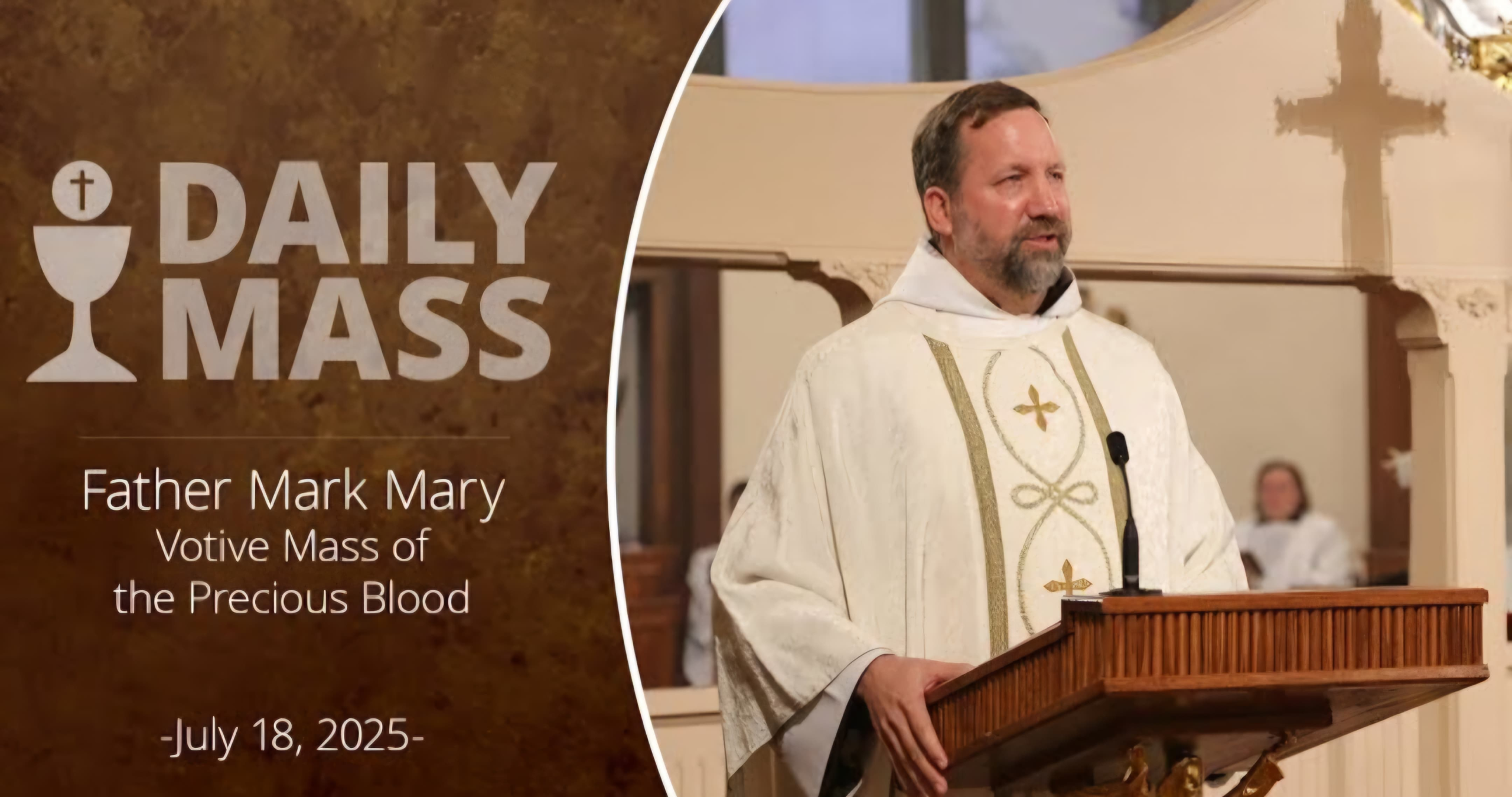Catholic Daily Mass
Holy Mass and Holy Rosary | EWTN | July 20, 2025 Watch “Holy Mass from the National Shrine of the Divine Mercy” | July 20, 2025...
Holy Mass and Holy Rosary | EWTN | July 20, 2025 Watch “Holy Mass from the National Shrine of the Divine Mercy” | July 20, 2025...
LIVE from Castel Gandolfo: Angelus Prayer with Pope Leo XIV | July 20, 2025 LIVE from Albano Cathedral | Holy Mass with Pope Leo XIV |...
MEMORIAL OF SAINT APOLLINARIS, BISHOP AND MARTYR; SAINT MARGARET OF ANTIOCH, VIRGIN AND MARTYR AND SAINT ELIAS THE PROPHET ~ FEAST DAY: JULY 20TH: Today, we...
Holy Mass and Holy Rosary | EWTN | July 19, 2025 Watch “Holy Mass from the National Shrine of the Divine Mercy” | July 19, 2025...
MEMORIAL OF SAINT AUREA OF CÓRDOBA, MARTYR; SAINT EPAPHRAS OF COLOSSAE, MARTYR; SAINT SYMMACHUS, POPE AND SAINT MACRINA THE YOUNGER, RELIGIOUS ~ FEAST DAY: JULY 19TH: Today,...
Holy Mass and Holy Rosary | EWTN | July 18, 2025 Watch “Holy Mass from the National Shrine of the Divine Mercy” | July 18, 2025...
MEMORIAL OF SAINT CAMILLUS DE LELLIS, PRIEST; SAINT FREDRICK, BISHOP AND MARTYR AND SAINT SYMPHOROSA AND HER SEVEN SONS, MARTYRS ~ FEAST DAY: JULY 18TH (Note:...

FRIDAY OF THE FIFTEENTH WEEK IN ORDINARY TIME SAINTS OF THE DAY ~ FEAST DAY: JULY 18, 2025 MEMORIAL OF SAINT CAMILLUS DE LELLIS, PRIEST; SAINT...
Holy Mass and Holy Rosary | EWTN | July 17, 2025 Watch “Holy Mass from the National Shrine of the Divine Mercy” | July 17, 2025...

MEMORIAL OF SAINT ALEXIUS OF ROME, CONFESSOR AND THE BLESSED CARMELITE MARTYRS OF COMPIEGNE ~ FEAST DAY: JULY 17TH: Today, we celebrate the Memorial of Saint...